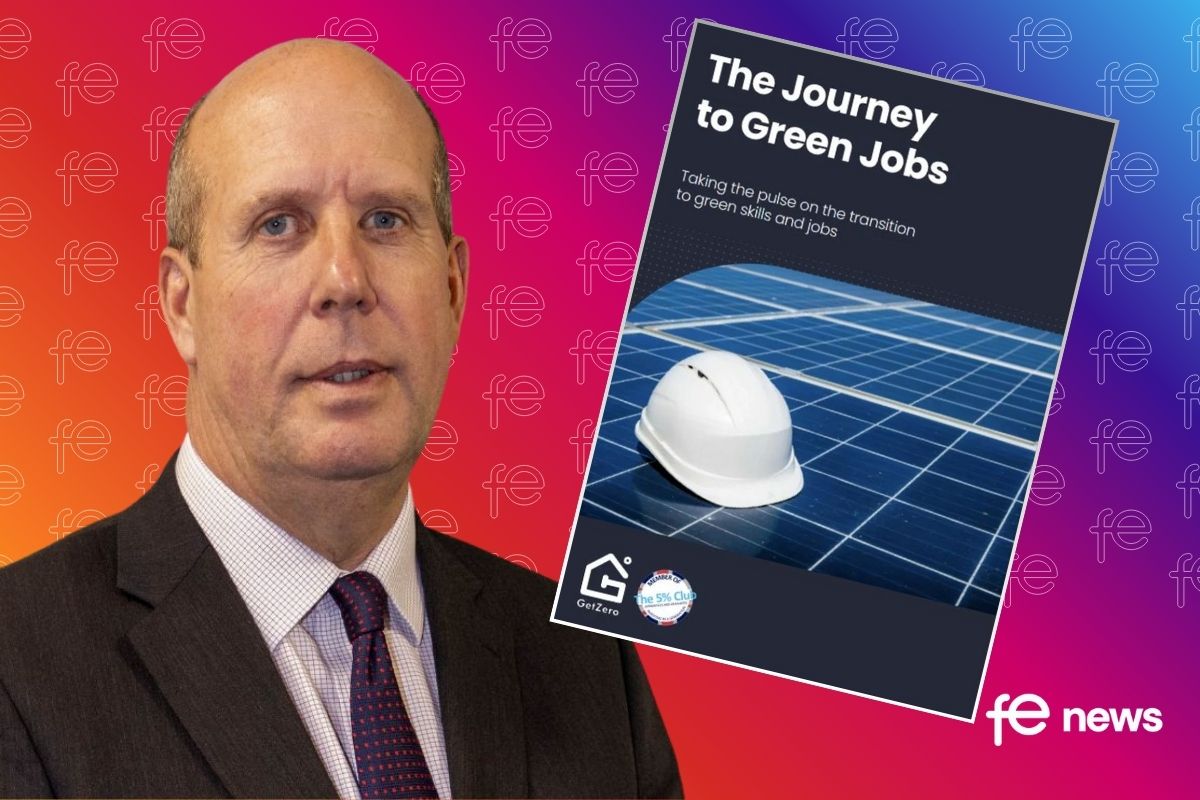Navigating the Transition to Green Jobs: New Report Reveals Skills Gap and Opportunities

A newly released report, The Journey to Green Jobs: Taking the Pulse on the Transition to Green Skills and Jobs, reveals that while the UK is making strides toward its net-zero targets, a critical skills gap threatens to slow progress. Jointly published by GetZero and The 5% Club, the report offers a comprehensive analysis of the challenges and opportunities tied to the growing demand for green jobs, underscoring the urgency of preparing the workforce for this transition.
Green jobs span a range of roles that contribute directly to environmental sustainability or integrate new green skills into traditional sectors like energy, construction, and transport. However, the pace of workforce development is falling behind market demand, raising concerns about whether the UK will be able to meet its climate targets by 2050.
Key Findings
- Significant Job Creation Potential: The UK stands to gain between 135,000 and 725,000 green jobs by 2030. The Confederation of British Industry (CBI) projects that the low-carbon economy could contribute between £37 billion and £57 billion annually to the GDP, representing 14-20% of total economic output.
- Green Skills Shortage: Despite the projected growth in green jobs, LinkedIn data suggests that only one in eight workers currently possesses green skills. Sectors such as energy and construction are particularly at risk, with an estimated shortfall of 200,000 and 230,000 workers, respectively, by 2030.
- Education Mismatch: The UK’s education system has not adapted swiftly enough to prepare students for green careers. A greater emphasis on vocational training, particularly in sectors like construction, transport, and agriculture, is needed to address this gap. The report highlights the importance of building awareness of green careers among young people to inspire a new generation of environmentally skilled workers.
- Policy and Industry Alignment: While the Labour Government has introduced initiatives like Skills England and Apprenticeship Levy reforms, the report stresses that these efforts need to be closely aligned with industry demands to deliver a skilled workforce capable of accelerating the green transition.
Insights from Industry Leaders
Business leaders have recognised the importance of integrating green skills into their workforce development strategies, with several key figures underscoring the need for immediate action.
Chris Shirley from QinetiQ reflects on the early stages of their green skills journey: “We are building our knowledge of where to focus investment in people development to maximise a green return. From there, we will build green career pathways, starting with Earn and Learn opportunities.”
In the construction industry, Claire Toomey-Robinson from AD Construction highlights the sector’s responsibility: “Reducing carbon is a collective responsibility. Collaboration across the industry is imperative.”
Julie Lawrenson from Bell Group emphasises the need to engage all staff in green skills training: “We offer green skills training to operational staff and apprentices as part of our Aspiring Leaders programme. As construction evolves, it’s crucial to focus on green skills to meet client demands and retain talent.”
Matt Robinson, CEO of GetZero, stressed the importance of investing in green skills: “The transition to a green economy is not just a challenge but an opportunity. By investing in green skills, we can not only meet our climate goals but also secure long-term economic growth. This report highlights the clear need for businesses, educators, and policymakers to work together to close the skills gap and ensure a sustainable future for the UK.”
Mark Cameron, CEO of The 5% Club, echoed this sentiment, emphasising the role of employers in driving the transition: “Our members are at the forefront of this shift. By prioritising green skills training and fostering collaborations with educational institutions, we can equip our workforce with the necessary skills to thrive in a green economy.”
A Collective Effort for a Green Future
The report emphasises the need for businesses to actively address the green skills gap. Companies that successfully integrate green skills into their operations not only meet regulatory and client demands but also enhance employee engagement and retention. By collaborating with educational institutions, leveraging technology, and offering innovative training programs, companies can prepare their workforce for the green economy.
Jim Coleman, Head of Economic Advisory at WSP and Professor at the University of Westminster, highlights the crucial role of workforce development in achieving the UK’s Net Zero 2050 targets. “The prescient labour market challenge—creating a skilled and flexible workforce to address challenges and respond to opportunities—is an essential prerequisite in progressing successfully to 2050. But we all too often hear that this is also the major sticking point. There are just not enough people and an insufficient skills base to move things along at the required pace.”
Coleman’s foreword stresses that this report provides valuable insights into how businesses are already taking action and how scaling up these efforts is critical for the UK’s green transition. “This report explains what is underway now in terms of innovative business practices and what else is possible with more resources and the organisational wherewithal to coordinate action across industries and public stakeholders.”
Driving Innovation and Collaboration
The report highlights several successful examples of companies taking proactive steps to close the green skills gap. Businesses have begun collaborating with local education providers, integrating green skills into existing roles, and using AI-driven tools to enhance training and development. These initiatives help create a more skilled and flexible workforce ready to meet the demands of a green economy.
The 5% Club, a network of employers dedicated to increasing the number of apprentices and graduates in the workforce, has outlined several initiatives to address the green skills challenge:
- Increased Focus on Green Skills: The 5% Club is encouraging its members to integrate green skills into their training programs, not just to meet regulatory demands but also to future-proof their workforces.
- Collaboration with Educational Institutions: Deeper partnerships between businesses and educational institutions are needed to ensure that green skills are taught effectively and that students are aware of career opportunities in the green economy.
- Regional Development and Equity: The 5% Club supports efforts to expand access to green skills training across the UK, particularly in regions that may be underserved by traditional educational institutions.
- Leveraging New Technologies: AI and other advanced technologies can play a crucial role in enhancing the depth and flexibility of green skills training programs, making them accessible to a broader range of workers.
Next Steps for a Green Workforce
The report serves as a practical guide for businesses, encouraging them to engage with local green skills hubs and further education (FE) colleges to start planning for their workforce needs. Innovations like AI-driven simulations will be key to addressing skills development more efficiently.
As Jim Coleman notes, addressing the skills gap is essential for both economic growth and achieving climate targets. “The opportunity for new jobs and businesses to emerge as we simultaneously address the tricky technical and organisational tests of getting to 2050 is happening in real time,” Coleman states. “But without a skilled and flexible workforce, we will not be able to move things along at the pace required.”
As the UK continues its journey toward a greener future, the insights from this report will be essential in shaping the strategies that ensure a skilled, resilient workforce ready to meet the demands of tomorrow.











Responses